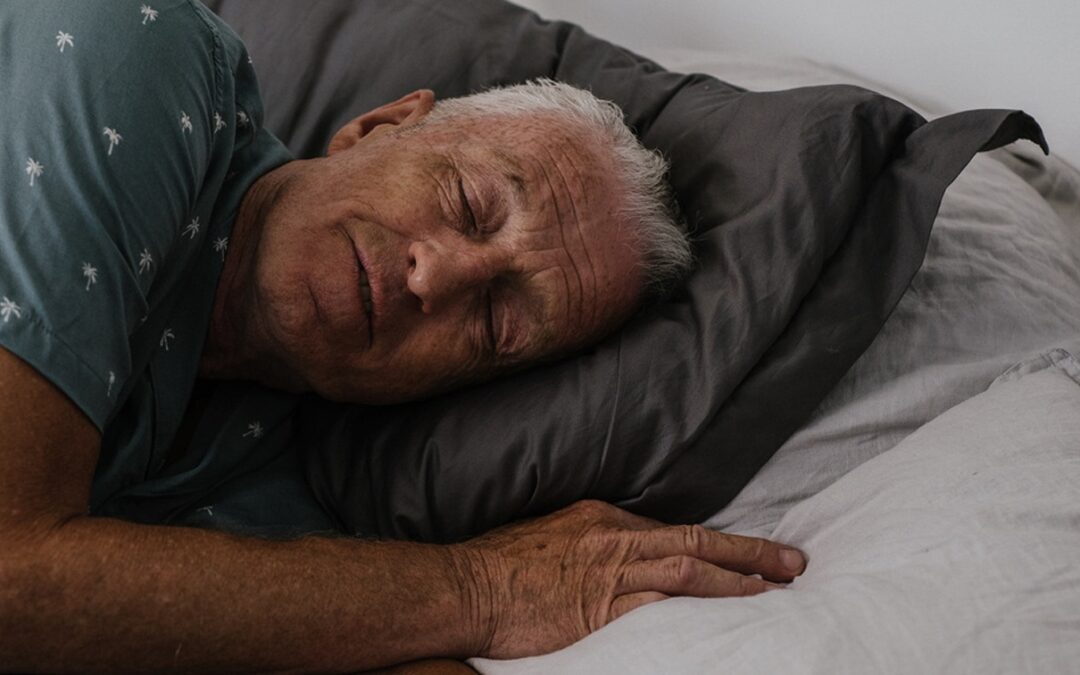
by wendigoadmin | Oct 29, 2025 | Franklin Care Blog
Caring for someone you love is one of the most meaningful things you can do, but it’s also one of the hardest. At Franklin Home Health Agency, LLC, we understand the emotional and physical demands that come with being a caregiver. To give your best care, you need to care for yourself too. Here’s how to manage stress and stop burnout before it starts.
Notice the warning signs
Stress doesn’t show up all at once , it sneaks in slowly. Burnout often begins with small changes:
- You’re tired even after sleeping.
- You get irritated easily or feel helpless.
- You lose interest in things that once made you happy.
- You skip meals, sleep less, or neglect your own check-ups.
Recognising these signs early gives you a chance to pause and breathe before exhaustion takes over.
Ask for help and accept it
You don’t have to carry everything on your shoulders. Caregiving is easier when you share the load.
- Let friends or family lend a hand, someone can help with meals, errands, or sitting with your loved one.
- Look for caregiver support groups online or in your community. Talking with others who understand your
situation can be comforting.
- If possible, use respite care services. Taking short breaks
allows you to recharge without guilt.
Remember, asking for help isn’t weakness.
Be kind to yourself
No caregiver is perfect. Some days will be smooth; others will test your patience. Remind yourself that doing your best is enough. Set realistic goals and celebrate small wins, even if it’s just getting through the day.
Make time for “you”
Don’t lose sight of who you are outside the caregiver role. Schedule moments that make you happy,
reading, gardening, or meeting friends. Revisit your routine often and adjust when life changes.
Final Thoughts
Caring for others is an act of love, but it shouldn’t come at the cost of your well-being. By recognising
your limits, asking for help, and giving yourself grace, you can continue to care with strength and
compassion.
At Franklin Home Health Agency, LLC, we believe that a healthy caregiver makes for a happier home.
Take time for yourself , you truly deserve it

by wendigoadmin | Aug 21, 2025 | Franklin Care Blog
Getting good sleep is one of the best gifts for our health, especially as we get older. A good night’s rest helps with memory, mood, energy, and even keeping the heart strong. But for many seniors, sleep doesn’t always come easily. The good news? A few simple habits can make nights calmer and mornings brighter.
Stick to a routine
Our bodies love routine. Going to bed and waking up at the same time every day helps set your “body clock.” Try making evenings peaceful with a wind-down ritual like reading, light stretching, or sipping a warm cup of herbal tea to signal that it’s time to rest.
Stay active during the day
Moving your body makes it easier to sleep well at night. This doesn’t mean tough workouts, a short walk, gardening, or gentle chair exercises can do wonders. Just try not to exercise too close to bedtime, as that can keep you wide awake.
Create a cozy sleep space
Your bedroom should feel calm and comfortable. A cool, dark, and quiet room works best. Simple fixes like blackout curtains, a fan for soft background noise, or a supportive mattress can make a big difference. And keep phones and TVs out of the bedroom, screens can trick your brain into staying awake.
Talk to your doctor if needed
Sometimes health issues, pain, or medications can make sleep harder. If you’ve tried healthy habits and still struggle, it’s a good idea to check in with your doctor. They can help spot sleep problems and find solutions that work best for you.
Calm the mind
Often, it’s not the body but the mind that refuses to switch off. Simple things like deep breathing, gentle meditation, or writing down tomorrow’s to-do list earlier in the evening can ease stress and prepare your mind for rest.
Final thoughts
Better sleep doesn’t always come from one big change; it’s usually the little habits that add up. With a steady routine, gentle activity, mindful eating, and a cozy bedroom, seniors can enjoy deeper rest and brighter mornings. Try a few of these tips and see what feels right.

by wendigoadmin | Jul 30, 2025 | Franklin Care Blog
Caring for someone with Alzheimer’s Disease can feel overwhelming, but having a simple daily routine can make a world of difference. A well-planned day brings structure, comfort, and peace not only for your loved one but for you, too. It helps reduce confusion and gives a sense of purpose.
Let’s walk through how you can create a calm, joyful daily routine that supports both body and mind.
Why a Routine Works
For seniors with Alzheimer’s, routine brings predictability. When they know what to expect, it eases anxiety and cuts down on restlessness or anger. Familiar activities and surroundings also help trigger memories and create a sense of safety. The more regular the day feels, the easier it becomes for everyone.
Start with the Basics
Begin by organizing the day around natural rhythms like waking, eating, resting, and sleeping. Plan
things at the same time every day so there are fewer surprises. Here’s a gentle flow that works well for many families:
- Morning: Start the day slowly. Help them with personal care like brushing teeth, washing face, and getting dressed. Keep choices simple, such as offering two outfit options. Breakfast should
be nutritious and unrushed, maybe enjoyed with soft music or sunlight.
- Mid-Morning: After breakfast, plan a calming, stimulating activity. This could be a puzzle,
watering plants, folding towels, or coloring. It’s not about doing it “right”, it’s about being engaged.
- Lunchtime: Try to eat lunch at the same time each day. If they enjoy helping, give them easy tasks like stirring soup or setting the table. After lunch, a short nap or quiet time with soft music or a book can help recharge.
- Afternoon: This is a great time for light physical movement. Go for a short walk, stretch, or dance to your favorite old songs. Later, you can bring out photo albums or do an easy craft. This time should feel relaxed and pleasant.
- Evening: Begin winding down after dinner.
Watch a favorite show, play soft music, or enjoy simple games like dominoes. Stick to a bedtime routine that includes a warm bath, comfy clothes, and reading a calming book. A peaceful end helps them sleep better.
Be Flexible, but Keep the Flow
Routines are helpful, but don’t stress if something needs to change. If your loved one is tired or upset, switch to something more soothing. What matters is keeping the overall structure meals, rest, and play, at steady times.
Also, watch for signs of boredom or frustration. Some days may need more rest, while others may be perfect for a fun activity. Let the day follow their energy levels.
Use Simple Tools
To make routines easier to follow:
- Use signs or pictures as reminders (like a toothbrush image on the bathroom door).
- Lay out clothes in order of how they’ll be worn.
- Keep noise and clutter to a minimum.
- Create a calm environment with soft lighting and peaceful colors.
These small steps can help reduce stress and make daily tasks feel more natural.
Keep Activities Meaningful
Not every moment needs to be busy. What’s most important is that activities feel familiar and enjoyable. Try things like:
- Listening to music they love
- Folding laundry or dusting with you
- Looking at old photos or sharing stories
- Drawing or painting
- Sitting outside and watching birds
These gentle activities can spark joy and help them feel included and useful.
Take Care of You Too
Caring for someone with Alzheimer’s is hard work. Don’t forget to rest, ask for help, and take breaks
when you need them. You’re not alone, and support is always available.
Final Thoughts
A good daily routine isn’t about being perfect— it’s about creating moments of connection, calm, and care. With love, patience, and a little planning, you can make each day feel more manageable and meaningful for both of you.
Franklincare.org is here to help you every step of the way. Explore our support services and discover how we can walk this journey with you

by wendigoadmin | Jul 5, 2025 | Franklin Care Blog
Taking care of someone with Alzheimer’s can be both a heartfelt journey and a tough challenge, especially when anxiety strikes. But don’t worry! These five powerful techniques will help you turn those tense moments into calm, caring connections.
1. Stay Cool and Breathe
When your loved one gets anxious, your calm makes all the difference. Take a deep breath, speak softly, and slow right down. Saying things like, “You’re safe here” or “I’ll stay with you,” Let them know they’re not alone. Even a few seconds of silence can let them relax, knowing you’re there.
2. Use Soothing Music & Sounds
Music is like a warm hug for the soul. Play their favourite songs, maybe the ones from their childhood, or gentle nature sounds. Research shows this can melt anxiety away. Keep the volume soft, slow, and gentle. You can also try white noise or a quiet sound machine at bedtime to ease restlessness.
3. Create a Calm, Familiar Spot
Your environment matters! Now’s the time to turn chaos into calm. Dim the lights, reduce loud noises, straighten clutter, and maybe add a favorite photo or a cozy blanket. If they love pets, even a gentle, hypoallergenic therapy animal can help. Or a soft toy or trusty scarf can become their comfort anchor.
4. Offer Gentle Touch & Validation
A soft hand on the shoulder or a warm hug can bring reassurance so fast. Always ask, “May I hold your hand?” This shows respect and gives them control. Tell them what you hear: “You’re worried about something.” Repeating their words back (like “You want to see your friend.”) tells them you understand and that calms fear.
5. Shift Focus to a Pleasant Activity
Sometimes a quick change is the best cure. A quiet walk, a snack they love, flipping through a favorite album, or a fun art project can gently redirect their thoughts. Even 5 minutes of easy breathing exercises or gentle yoga may lower stress and boost peace.
Why These Work
These techniques focus on feelings, not on correcting facts—because with Alzheimer’s, emotions are key. They also rely on non-drug, gentle methods, which experts encourage before medication.
In the Moment:
1.Talk softly.
2.Play calm sounds.
3.Bring comfort items or touch.
4.Repeat their feelings.
5.Switch to a pleasant activity.
Over time, these simple steps can bring more peace for them and for you. If you’re caring for a loved one with Alzheimer’s and want guidance, resources, or a caring community, reach out to Franklin Care.
Visit: https://franklincare.org/
Call: (843)‑765‑3212

by wendigoadmin | May 25, 2025 | Franklin Care Blog
Caring for elderly family members at home is a noble responsibility, but it also comes with unique challenges, especially when emergencies arise. Whether it’s a sudden fall, a medical crisis, or a natural disaster, being prepared can make all the difference. Here’s how to ensure your elderly loved ones stay safe and supported during unexpected situations
Creating a Simple Emergency Plan
Start by drafting a straightforward emergency plan. This should include emergency contacts, medical information, evacuation routes, and meeting points. Practice this plan regularly to ensure everyone knows what to do.
Assembling an Emergency Kit
Prepare a kit with essentials that can sustain your loved one for at least three days. Include non-perishable food, bottled water, medications, first-aid supplies, flashlight with extra batteries, warm blankets, and important documents in a waterproof bag. Store the kit in an easily accessible location and check its contents every six months.
Ensuring Home Safety
Modify the home to prevent accidents. Install grab bars in bathrooms, remove loose rugs and cluttered pathways, ensure smoke and carbon monoxide detectors are functional, and use nightlights in hallways and bathrooms. These adjustments can significantly reduce the risk of falls and other injuries.
Staying Connected
Communication is vital during emergencies. Provide your loved one with a simple-to-use cell phone, program emergency numbers for easy access, consider medical alert systems that can call for help at the push of a button, and set up regular check-ins with neighbors or friends. Staying connected ensures timely assistance when needed.
Planning for Specific Scenarios
Different emergencies require tailored responses. For falls, encourage the use of assistive devices and ensure floors are dry and clear. For fires, have fire extinguishers accessible and practice evacuation drills. For power outages, keep flashlights handy and have a backup power source for medical equipment. For natural disasters, stay informed about local emergency procedures and shelters. Understanding potential risks allows for better preparation.
Conclusion
Emergencies can be daunting, but with the right preparation, you can ensure the safety and well being of your elderly loved ones. If you need assistance or guidance, Franklin Home Health Agency is here to help. We offer customizable caregiving solutions tailored to your family’s needs.





